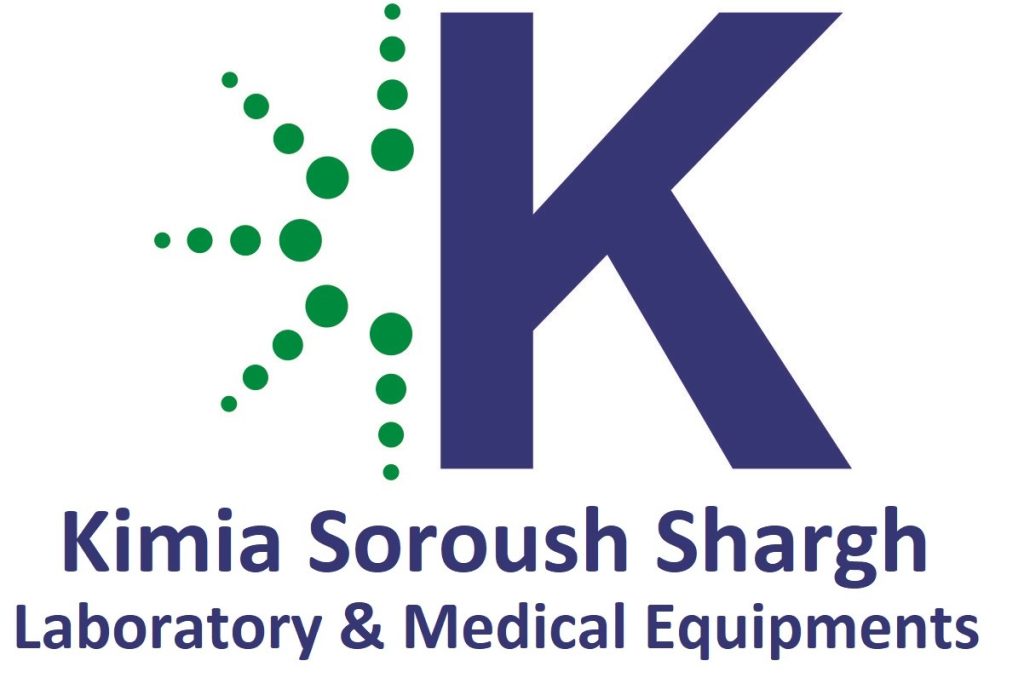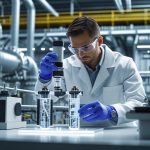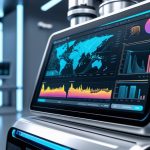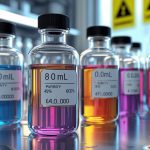A comprehensive guide to selecting the right laboratory equipment for every application.
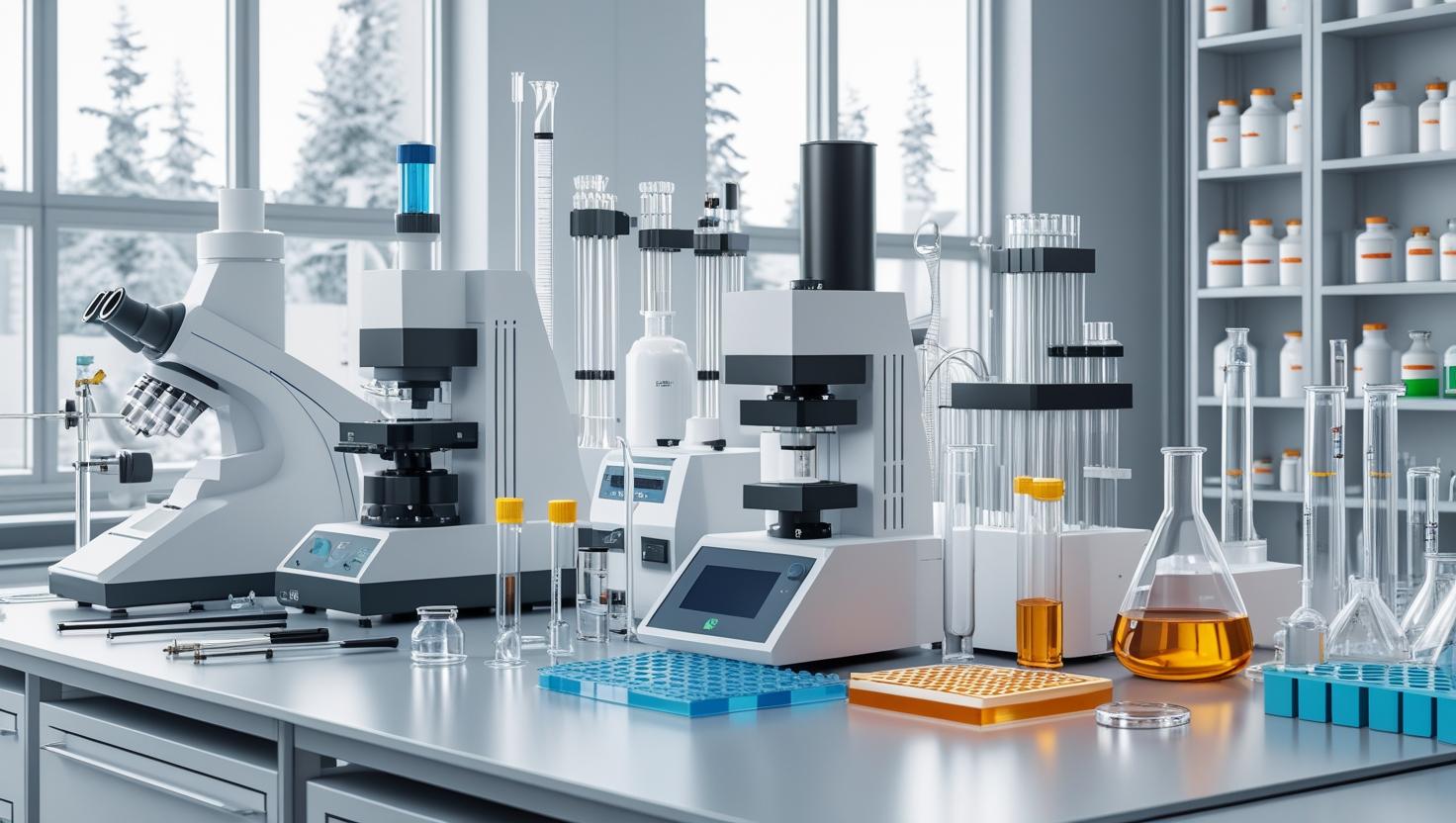
Selecting the right laboratory equipment is one of the most critical steps in setting up or upgrading a specialized lab. Whether for academic research, the oil, gas, and petrochemical industries, or water and wastewater quality control labs, proper equipment plays a key role in accuracy, reliability, and speed of results.
The first step is to define the lab’s main activities and core applications. For example, an analytical laboratory focused on precise chemical analysis requires advanced instruments like chromatography systems, spectrometers, and other high-end devices. In contrast, a general or educational lab might need more basic glassware, standard chemicals, and simpler equipment.
Next, budget and physical space should be carefully considered. Some advanced instruments require large areas and proper infrastructure (ventilation systems, three-phase power, anti-vibration tables, etc.).
Another crucial factor is choosing a reputable brand and reliable supplier. Poor-quality equipment not only compromises test results but also leads to higher maintenance and repair costs.
Finally, technical support and after-sales service are extremely important. A supplier that offers not just sales but also installation, calibration, and training provides significant added value.
By considering these factors, you can choose the most suitable equipment for your needs and maximize the
Selecting the right laboratory equipment is one of the most critical steps in setting up or upgrading a specialized lab. Whether for academic research, the oil, gas, and petrochemical industries, or water and wastewater quality control labs, proper equipment plays a key role in accuracy, reliability, and speed of results.
The first step is to define the lab’s main activities and core applications. For example, an analytical laboratory focused on precise chemical analysis requires advanced instruments like chromatography systems, spectrometers, and other high-end devices. In contrast, a general or educational lab might need more basic glassware, standard chemicals, and simpler equipment.
Next, budget and physical space should be carefully considered. Some advanced instruments require large areas and proper infrastructure (ventilation systems, three-phase power, anti-vibration tables, etc.).
Another crucial factor is choosing a reputable brand and reliable supplier. Poor-quality equipment not only compromises test results but also leads to higher maintenance and repair costs.
Finally, technical support and after-sales service are extremely important. A supplier that offers not just sales but also installation, calibration, and training provides significant added value.
By considering these factors, you can choose the most suitable equipment for your needs and maximize the
Selecting the right laboratory equipment is one of the most critical steps in setting up or upgrading a specialized lab. Whether for academic research, the oil, gas, and petrochemical industries, or water and wastewater quality control labs, proper equipment plays a key role in accuracy, reliability, and speed of results.
The first step is to define the lab’s main activities and core applications. For example, an analytical laboratory focused on precise chemical analysis requires advanced instruments like chromatography systems, spectrometers, and other high-end devices. In contrast, a general or educational lab might need more basic glassware, standard chemicals, and simpler equipment.
Next, budget and physical space should be carefully considered. Some advanced instruments require large areas and proper infrastructure (ventilation systems, three-phase power, anti-vibration tables, etc.).
Another crucial factor is choosing a reputable brand and reliable supplier. Poor-quality equipment not only compromises test results but also leads to higher maintenance and repair costs.
Finally, technical support and after-sales service are extremely important. A supplier that offers not just sales but also installation, calibration, and training provides significant added value.
By considering these factors, you can choose the most suitable equipment for your needs and maximize the
Selecting the right laboratory equipment is one of the most critical steps in setting up or upgrading a specialized lab. Whether for academic research, the oil, gas, and petrochemical industries, or water and wastewater quality control labs, proper equipment plays a key role in accuracy, reliability, and speed of results.
The first step is to define the lab’s main activities and core applications. For example, an analytical laboratory focused on precise chemical analysis requires advanced instruments like chromatography systems, spectrometers, and other high-end devices. In contrast, a general or educational lab might need more basic glassware, standard chemicals, and simpler equipment.
Next, budget and physical space should be carefully considered. Some advanced instruments require large areas and proper infrastructure (ventilation systems, three-phase power, anti-vibration tables, etc.).
Another crucial factor is choosing a reputable brand and reliable supplier. Poor-quality equipment not only compromises test results but also leads to higher maintenance and repair costs.
Finally, technical support and after-sales service are extremely important. A supplier that offers not just sales but also installation, calibration, and training provides significant added value.
By considering these factors, you can choose the most suitable equipment for your needs and maximize the
Selecting the right laboratory equipment is one of the most critical steps in setting up or upgrading a specialized lab. Whether for academic research, the oil, gas, and petrochemical industries, or water and wastewater quality control labs, proper equipment plays a key role in accuracy, reliability, and speed of results.
The first step is to define the lab’s main activities and core applications. For example, an analytical laboratory focused on precise chemical analysis requires advanced instruments like chromatography systems, spectrometers, and other high-end devices. In contrast, a general or educational lab might need more basic glassware, standard chemicals, and simpler equipment.
Next, budget and physical space should be carefully considered. Some advanced instruments require large areas and proper infrastructure (ventilation systems, three-phase power, anti-vibration tables, etc.).
Another crucial factor is choosing a reputable brand and reliable supplier. Poor-quality equipment not only compromises test results but also leads to higher maintenance and repair costs.
Finally, technical support and after-sales service are extremely important. A supplier that offers not just sales but also installation, calibration, and training provides significant added value.
By considering these factors, you can choose the most suitable equipment for your needs and maximize the
Selecting the right laboratory equipment is one of the most critical steps in setting up or upgrading a specialized lab. Whether for academic research, the oil, gas, and petrochemical industries, or water and wastewater quality control labs, proper equipment plays a key role in accuracy, reliability, and speed of results.
The first step is to define the lab’s main activities and core applications. For example, an analytical laboratory focused on precise chemical analysis requires advanced instruments like chromatography systems, spectrometers, and other high-end devices. In contrast, a general or educational lab might need more basic glassware, standard chemicals, and simpler equipment.
Next, budget and physical space should be carefully considered. Some advanced instruments require large areas and proper infrastructure (ventilation systems, three-phase power, anti-vibration tables, etc.).
Another crucial factor is choosing a reputable brand and reliable supplier. Poor-quality equipment not only compromises test results but also leads to higher maintenance and repair costs.
Finally, technical support and after-sales service are extremely important. A supplier that offers not just sales but also installation, calibration, and training provides significant added value.
By considering these factors, you can choose the most suitable equipment for your needs and maximize the
